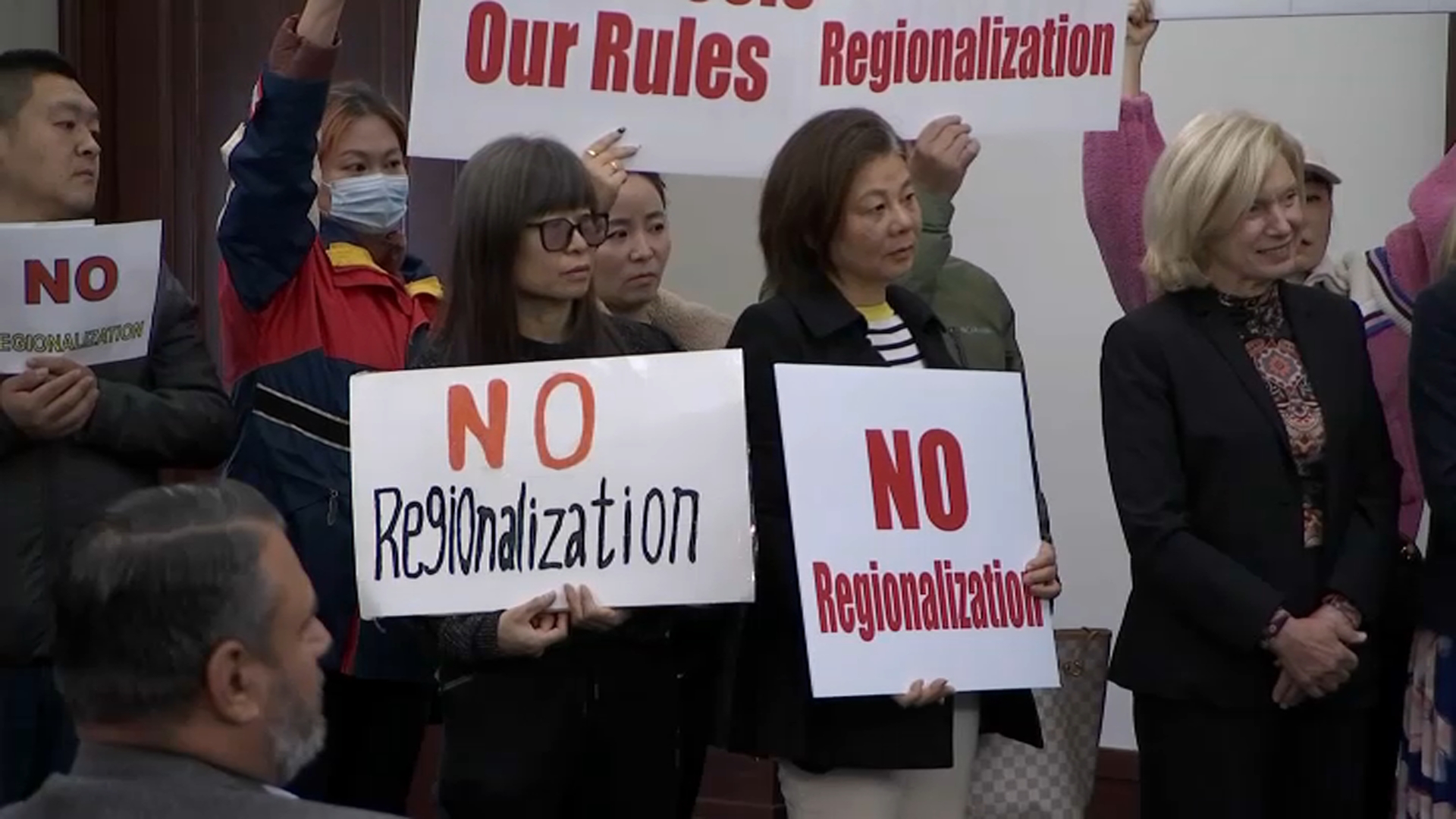New Yorkers are split along racial lines over whether the city is on the right track under Democratic Mayor Bill de Blasio, according to a NBC 4 New York/Wall Street Journal/Marist Poll released on Tuesday.
White residents were more critical of the direction the city is headed than African Americans or Latinos, the poll found.
At the same time 44 percent approve of the job de Blasio is doing, up slightly from last year, and a majority have a favorable impression of him.
“He’s a Democratic mayor in a Democratic town and he has a 44 percent approval rating,” said Lee Miringoff, the director of the Marist College Institute for Public Opinion. “The best you can say is the numbers have inched up while a lot of the other numbers have deteriorated.”
Wiley Norvell, deputy press secretary for de Blasio, said, “Polls go up and polls go down."
"What remains constant is Mayor de Blasio’s unflinching commitment to fighting income inequality and lifting up working people and families across New York City,” Norvell said.
Forty-nine percent of New York voters said the city was moving in the wrong direction compared to 45 percent who thought it was headed the right way, the poll found. African Americans were the most optimistic at 53 percent compared to 47 percent of Latinos and only 35 percent of whites.
Local
“It’s a very polarized city along racial lines,” Miringoff said.
The most recent poll surveyed 713 New York City adults from April 29 through Sunday. The margin of error was plus or minus 3.7 percentage points and 4.2 percent for registered voters.
The results represent a shift in thinking from a year ago, according to Miringoff. In March 2014, 53 percent of New Yorkers thought the city was on course, compared to 42 percent who said it was not.
Today only 17 percent of residents said that the quality of life in New York City had gotten better in the last year, while a majority or 56 percent thought it had either gotten worse or stayed the same, which they thought was a bad thing.
By one measure, 9 percent said that the number of homeless or mentally ill people or panhandlers on the city’s streets had decreased. By contrast, 42 percent said the number had increased and 43 percent it had stayed the same.
But as far as assurance in the New York City Police Department, 60 percent said that they were confident that the police would protect their community from violent crime. White residents were the most likely to trust police to keep them safe, 76 percent compared to 54 percent of Latinos and 49 percent of African Americans.
As far as the job de Blasio is doing, his job approval rating is at 44 percent slightly up from 39 percent a year ago. Forty-seven percent said he deserved to be re-elected.
Fifty-nine percent have a favorable impression of him, but again New Yorkers divide by race and ethnicity. Seventy-four percent of Latinos and 73 percent of African American voters have a positive opinion. Only 40 percent of white voters do.
The same was true when voters were asked whether they believed he could unify the city. Sixty-eight percent of African Americans agreed compared to only 30 percent of white voters.
Forty-seven percent of residents approve of how he is handling the city’s schools and economic development, but 57 percent disapprove of his handling of relations between the police and the community.
And only 40 percent think he is changing the city for the better. Fifty-three percent say they do not think his policies are historic or transformative as he describes them.
“His numbers are lukewarm,” Miringoff said.
On a personal level, 59 percent of voters viewed him as someone who cared about the average person, down from 65 percent last year, and 53 percent said he was a good leader for New York City, also down, from 58 percent last year.
Sixty-nine percent of registered voters thought he was correct to withhold an endorsement of Hillary Clinton for president until he knew more about her vision of the future. Twenty-four percent thought that as a Democrat, he was disloyal.
As far as decriminalizing some offenses, as the City Council is considering, 66 percent support such a move for being in a park after dark, 55 percent for public consumption of alcohol and 49 percent for jumping a turnstile. Sixty-three percent support downgrading riding a bicycle on a sidewalk to a civil violation. Fifty percent are in favor of the same about public urination, 47 percent are not.
When it came to de Blasio’s notorious tardiness, 55 percent of voters said that they thought he was irresponsible when he failed to arrive on time for public events.



